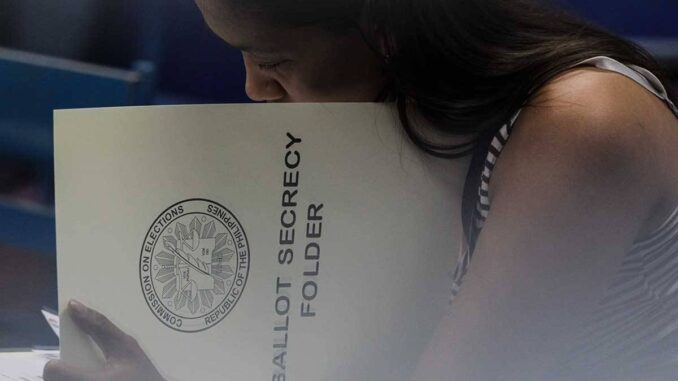
THE majority of Filipino voters demand good governance, transparency and accountability as the country approaches the 2025 midterm elections, a survey conducted by Publicus Asia Inc. released on Wednesday showed.
The survey, conducted from Nov. 29 to Dec. 3, showed overwhelming support for measures aimed at ensuring integrity among candidates and elected officials.
Conducting lifestyle checks for officials and candidates received the highest approval at 80 percent, followed closely by neuro-psychiatric evaluation at 79 percent, and hair follicle drug testing for the president, vice president, Senate president and House speaker (73 percent), Publicus Asia said.
Key government actions also gained public favor, with 72 percent approving President Ferdinand Marcos Jr.’s Executive Order 74, which bans Philippine offshore gaming operators and internet gaming licensees in the country.
Transparency on the completion status of 5,500 flood-control projects and over 100 evacuation centers, as highlighted in the president’s 3rd State of the Nation Address, earned 65 percent approval.
The Create More Law, which lowers corporate income taxes to 20 percent and supports remote work arrangements, was viewed positively by 62 percent of respondents.
The judiciary’s initiatives also garnered attention, with 61 percent of those polled approving the Supreme Court’s temporary restraining order halting further transfers of surplus PhilHealth funds to the National Treasury.
Additionally, 52 percent supported the Court’s proposal to establish guidelines for incorporating artificial intelligence into court operations and management.
Publicus Asia said investigations into controversial figures and past actions were also a significant focus of public interest.
The Senate investigation into Pastor Apollo Quiboloy and allegations of human trafficking and abuse within the Kingdom of Jesus Christ received 74 percent approval.
Former president Rodrigo Duterte’s participation as a witness in Senate and House inquiries into allegations of extrajudicial killings during his administration was met with 61 percent and 58 percent approval, respectively.
The polling firm said that the proposed budget adjustments for 2025 “elicited mixed reactions.”
It said 47 percent of respondents approved the House of Representatives’ reduction of the Department of Public Works and Highways’ budget from P898 billion to P825 billion, as well as the significant cut to the Office of the Vice President’s budget — from P2.026 billion to P733 million — garnered the same level of support.
However, issues such as the alleged P39.8-billion funding insertion for the Ayuda para sa Kapos ang Kita Program and the depletion of the Quick Response Fund had lower approval ratings, at 44 percent and 27 percent, respectively.
The same survey showed that election management and reform efforts led by the Commission on Elections (Comelec) were another key focus for respondents.
Measures such as considering the use of fake accounts, deepfakes and “fake news” as election offenses gained 66 percent approval, while 64 percent supported requiring candidates and political parties to register their social media accounts and other online platforms with Comelec.
The introduction of internet-based voting for overseas Filipino workers was also welcomed by 59 percent of respondents.
“Overall, the survey highlights the public’s growing expectation for reforms and ethical leadership as the nation prepares for the 2025 elections,” Publicus Asia said.
“Voters continue to prioritize transparency, accountability, and a stronger focus on addressing pressing national issues,” it said.
The Pahayag 2024 End of the Year survey is an independent, non-commissioned national survey conducted by Publicus Asia Inc.
The members of the purposive survey panel were randomly selected from the online research panel marketplace of 200,000 registered Filipino voters maintained by the Singapore office of PureSpectrum, a US-based panel marketplace with a multinational presence.





Be the first to comment